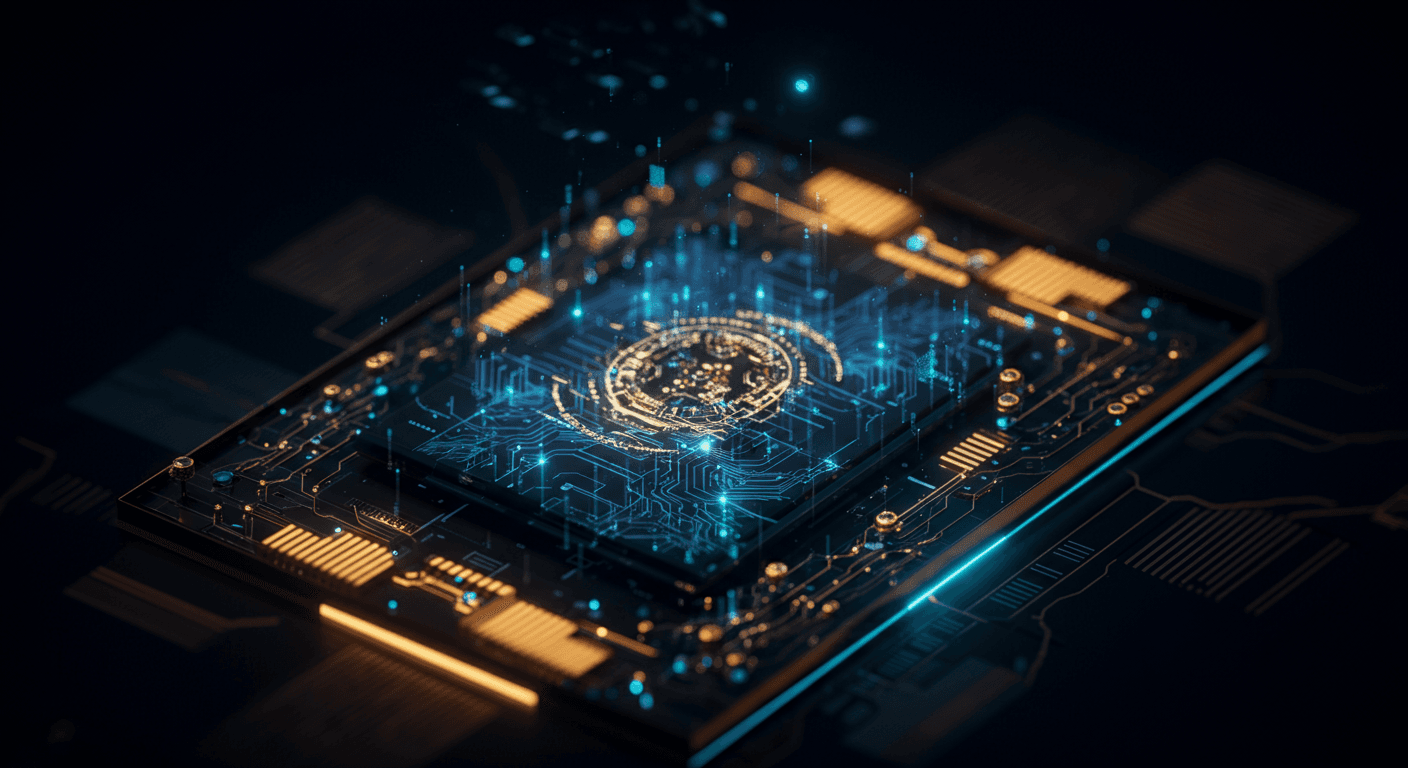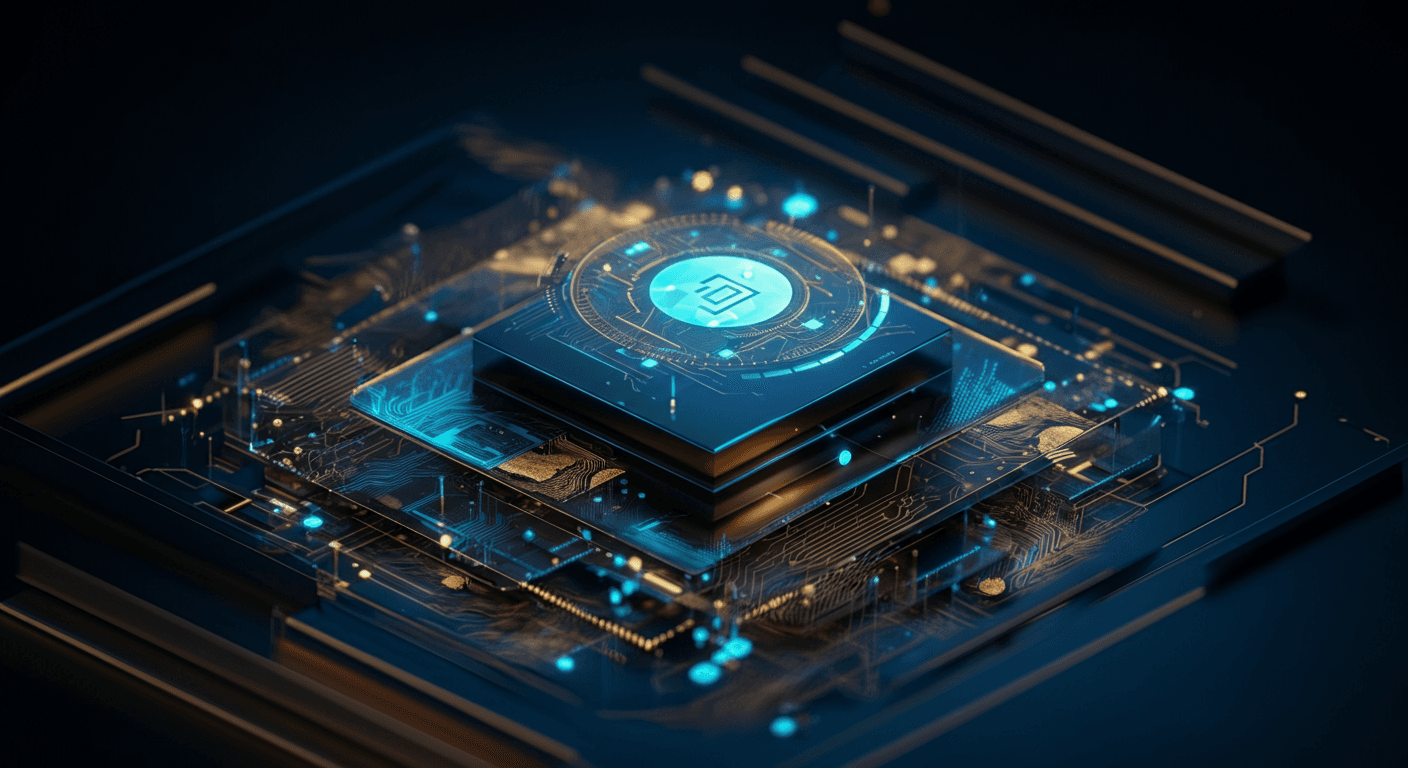Unlock Domain Expertise: Scaling Knowledge in Complex Industries with AI

The relentless march of progress hinges on our ability to distribute specialized knowledge, not just generate it.
The Untapped Potential: Why Scaling Domain Expertise with AI is the Next Frontier
Domain expertise – that deep, nuanced understanding of a specific field – is the bedrock of innovation and efficiency in industries like finance, healthcare, and law. Imagine a seasoned cardiologist instantly sharing decades of diagnostic experience, or a legal eagle making nuanced interpretations accessible to junior associates. Traditional methods of capturing and scaling this expertise are…well, let’s just say they're about as efficient as using carrier pigeons in the age of fiber optics.
The Current State of Domain Expertise Scaling: Challenges and Opportunities

Traditional methods are struggling to keep pace:
- Documentation: Dense manuals are often outdated before they're even printed.
- Training Programs: Can be time-consuming, expensive, and still fail to capture tacit knowledge.
- Mentorship: Valuable, but ultimately limited by time and availability.
Enter AI. AI isn't just a fancy calculator; it's a potential game-changer in how we capture, codify, and democratize domain expertise. Think of it as a code assistance tool for your brain, helping to structure and distribute knowledge. For example, instead of relying solely on dense legal textbooks, imagine AI that can analyze case law and provide nuanced interpretations based on a legal expert's input. The potential ROI is massive: fewer errors, faster decision-making, and improved compliance. And with the growing skills gap, the need for innovative solutions to democratize specialized knowledge has never been greater.
The time to embrace this transformation is now, before the carrier pigeons unionizes.
Beyond the Hype: How AI Actually Scales Expertise in Complex Domains
The promise of AI isn't just automation; it's about scaling human expertise to solve problems previously deemed intractable. But how does it really work?
Knowledge Graphs: The Backbone of AI-Driven Domain Expertise Scaling
At the heart of this lies knowledge representation. Think of Knowledge Graphs as intricate webs, connecting concepts and facts within a specific domain.- These graphs are constructed using various AI-powered knowledge elicitation techniques, including Natural Language Processing (NLP) to extract information from documents, and machine learning to identify relationships between data points.
- Imagine a knowledge graph for medical diagnosis. Nodes might represent diseases, symptoms, genes, and treatments, linked by edges that describe their relationships.
- AI algorithms then navigate this graph, drawing inferences and making predictions – much like a seasoned doctor considering a patient's history and symptoms.
AI-Powered Knowledge Elicitation Techniques: From Data to Decisions
These techniques don't just passively store information. They actively:- Extract structured information: AI algorithms can parse complex documents and identify key data points, like regulatory requirements in finance or engineering specifications in manufacturing. Data Analytics tools are very useful for this.
- Organize unstructured data: NLP helps categorize text, identify sentiment, and summarize content, making vast troves of information searchable and understandable.
The Human-AI Collaboration Imperative
It's important to consider the human element. AI isn't about replacing experts, but augmenting their capabilities. AI-powered systems automate routine tasks, freeing up human experts to focus on the most complex and nuanced challenges. For instance, ChatGPT can help with tasks that would take hours to complete.AI's true potential lies in the synergy between human intellect and machine intelligence, creating a future where expertise is more accessible and impactful than ever before. Next, we'll look at some practical applications of AI in specific industries.
Unlock Domain Expertise: Scaling Knowledge in Complex Industries with AI
Real-World Applications: AI Scaling Domain Expertise in Action
It's no longer science fiction; AI is actively bridging knowledge gaps in specialized fields.
AI in Financial Services
Imagine compliance officers spending countless hours reviewing documents for regulatory adherence – a slow, error-prone process ripe for AI disruption.
- Compliance Automation: Financial firms are using AI-driven compliance automation to streamline contract review, identify potential risks, and ensure regulatory compliance. This reduces human error and saves significant time.
- Fraud Detection: AI algorithms analyze transactional data to identify fraudulent activities faster and more accurately than traditional methods. This protects both the firm and its customers. An excellent tool for data analysis is Akkio, a no-code AI platform for predictive analytics.
AI in Healthcare
- Diagnostic Accuracy: AI algorithms analyze medical images (X-rays, MRIs) to assist radiologists in detecting diseases like cancer at an early stage. This leads to improved patient outcomes. For example, Lunit offers AI-powered medical image analysis tools.
- Personalized Treatment: AI analyzes patient data to develop personalized treatment plans, optimizing medication dosages and therapy approaches.
AI in Legal Industry
- Contract Review: Law firms are leveraging AI to automate the contract review process. Tools like Spellbook help identify clauses, assess risks, and ensure compliance, significantly reducing manual effort and potential errors.
- Legal Research: AI-powered legal research tools can quickly sift through vast amounts of case law and statutes to find relevant precedents, saving lawyers valuable time.
Challenges and Solutions
| Challenge | AI Solution |
|---|---|
| Data Availability | Synthetic Data Generation |
| Algorithmic Bias | Bias Detection and Mitigation Techniques |
| Integration Complexity | Low-Code/No-Code AI Platforms |
In essence, AI isn't replacing experts, but empowering them to work smarter and more efficiently, ultimately scaling expertise across complex industries. Explore more AI tools in the AI Tools Directory.
The rapid integration of AI into expert systems presents immense opportunities, but we must proceed with caution, ensuring ethical practices are at the forefront.
The Need for Transparency and Explainability
In domains like healthcare or finance, black-box AI is simply unacceptable. Transparency means understanding how* an AI arrives at a decision.- Explainability allows experts to validate and trust AI recommendations.
Mitigating Bias in AI Systems
AI models are trained on data, and if that data reflects existing biases, the AI will amplify them.- AI Bias Detection and Mitigation in Expert Systems: Implement rigorous testing protocols to identify and correct for bias in algorithms, paying special attention to sensitive demographic factors.
- Fairness requires actively seeking diverse datasets and regularly auditing AI performance across different subgroups to prevent discriminatory outcomes. Consider Data Analytics tools to help highlight these gaps.
Governance, Compliance, and Human Oversight
Even the most sophisticated AI requires a human in the loop, especially in regulated industries.- AI governance frameworks should define clear roles and responsibilities, outlining when human intervention is necessary.
- Compliance frameworks ensure that AI systems adhere to industry-specific regulations and ethical guidelines.
- Human oversight ensures that AI recommendations are critically evaluated and aligned with human judgment, preventing unintended consequences. The AI Lawyer tool offers an example, but the need for human review remains crucial.
Unlocking domain expertise at scale is no longer a theoretical possibility, but a tangible goal within reach thanks to modern AI.
Building the Future: A Practical Guide to Implementing AI for Domain Expertise Scaling

Here's a step-by-step guide to help your organization leverage AI for effective knowledge management, focusing on implementing AI for knowledge management best practices.
- Data Preparation:
- Consolidate disparate data sources, cleanse and normalize the data, and establish a robust data governance framework.
- Technology Selection:
- Choosing the right AI tools is vital. Are you looking for AI-powered search tools to make finding information easier? Maybe code assistance AI tools to help domain experts work faster, or Productivity AI tools to supercharge collaboration? Carefully consider your specific needs and requirements.
- Consider factors like scalability, integration capabilities, cost, and ease of use. Remember, the best tool is the one that fits your specific challenge.
- Talent Acquisition & Training:
- You'll need individuals who can bridge the gap between domain expertise and AI implementation.
- Invest in training programs to upskill your existing workforce. Consider hiring data scientists, AI engineers, and prompt engineers – those who truly understand how to make these algorithms sing. Need help? Tools like LinkedIn Learning can help your employees stay up-to-date with the latest developments.
- Change Management & User Adoption:
- Overcoming Resistance to AI Adoption in Expert-Driven Organizations requires careful planning.
- Communicate the benefits of AI, involve users in the implementation process, and provide ongoing support and training.
- Iterative Implementation & Monitoring:
- Start small, iterate quickly, and continuously monitor the performance of your AI models.
Pitfalls & Challenges:
- Data bias
- Lack of transparency
- Ethical considerations
Measuring Success: How to Track the ROI of AI-Driven Domain Expertise is crucial; after all, we're scientists, not mystics!
Defining KPIs for AI-Driven Knowledge Transfer
Key Performance Indicators (KPIs) are the lifeblood of any successful initiative, especially in the complex world of AI-driven domain expertise scaling. What gets measured, gets managed. Here's how we define those KPIs:
Reduced error rates: AI should decrease* the frequency of mistakes in critical processes.
- Faster decision-making times: AI enables rapid analysis, leading to quicker, more informed decisions. Imagine ChatGPT instantly summarizing complex case studies.
- Improved compliance scores: AI ensures adherence to regulations, minimizing risks.
- Increased efficiency: AI automates tasks, freeing up human experts for higher-level activities.
Methods for Tracking and Analyzing KPIs
Now that we know what to measure, how do we actually do it?
- Real-time dashboards: Visualize data to quickly identify trends and potential problems.
- A/B testing: Compare the performance of AI-driven solutions against traditional methods.
- Statistical analysis: Use tools to identify statistically significant improvements.
Quantifying the ROI of AI Implementations
Let's get down to brass tacks. How do we show the money?
- Calculate the cost savings from reduced errors and increased efficiency.
- Determine the revenue gains from faster decision-making.
- Assess the reduced risk exposure thanks to improved compliance.
- Consider intangible benefits like increased employee satisfaction and improved customer service. These often translate to tangible gains down the line.
Continuous Monitoring and Improvement
Like any good experiment, constant adjustment is key.
- Regularly review KPI data to identify areas for improvement.
- Solicit feedback from users to understand their experience with AI tools.
- Update AI models based on new data and insights.
The convergence of AI and domain expertise is set to revolutionize how we approach complex challenges across industries.
Emerging Trends and Technologies
The future of AI in regulated industries will see an increasing reliance on technologies like:- Generative AI: Imagine DALL-E 3 not just creating images, but generating complex scientific models, predicting market trends, or designing new medical treatments. These generative models are increasingly adept at understanding and replicating intricate patterns within specialized domains.
- Reinforcement Learning (RL): RL is poised to optimize complex systems, from logistics and supply chain management to personalized healthcare plans.
The Convergence of Generative AI and Expert Systems
This synergy will amplify the capabilities of both. Expert systems provide structured knowledge and reasoning frameworks, while generative AI introduces creativity and pattern recognition.- Example: In drug discovery, an expert system might define the rules for molecular interaction, while a generative AI could design novel drug candidates, accelerating the process significantly. Consider also how a tool like WolframAlpha can provide the computational horsepower for these expert systems.
The Future of Work
The role of AI will be to empower human experts, not replace them.- AI will handle repetitive tasks, freeing up experts to focus on innovation, strategic decision-making, and complex problem-solving. For instance, AI tools for scientific research are already accelerating discovery.
Keywords
domain expertise, scaling domain expertise, AI in regulated industries, knowledge scaling, expert systems, knowledge management, AI strategy, compliance automation, expert knowledge elicitation, training AI models with expert knowledge, AI governance, AI risk management
Hashtags
#DomainExpertise #AIinRegulatedIndustries #KnowledgeScaling #ExpertSystems #AIStrategy
Recommended AI tools
ChatGPT
Conversational AI
AI research, productivity, and conversation—smarter thinking, deeper insights.
Sora
Video Generation
Create stunning, realistic videos & audio from text, images, or video—remix and collaborate with Sora 2, OpenAI’s advanced generative app.
Google Gemini
Conversational AI
Your everyday Google AI assistant for creativity, research, and productivity
Perplexity
Search & Discovery
Clear answers from reliable sources, powered by AI.
Cursor
Code Assistance
The AI code editor that understands your entire codebase
DeepSeek
Conversational AI
Efficient open-weight AI models for advanced reasoning and research
About the Author

Written by
Dr. William Bobos
Dr. William Bobos (known as 'Dr. Bob') is a long-time AI expert focused on practical evaluations of AI tools and frameworks. He frequently tests new releases, reads academic papers, and tracks industry news to translate breakthroughs into real-world use. At Best AI Tools, he curates clear, actionable insights for builders, researchers, and decision-makers.
More from Dr.Was this article helpful?
Found outdated info or have suggestions? Let us know!


